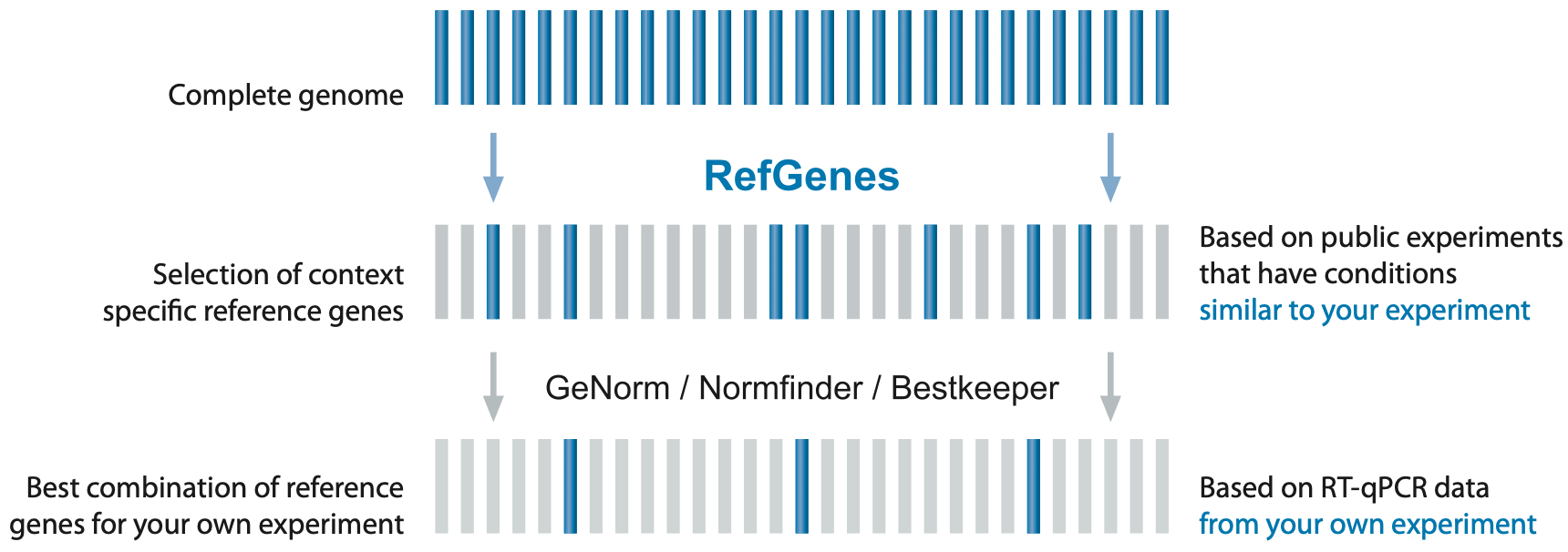General problem
The choice of suitable reference genes is absolutely crucial in RT-qPCR gene expression analysis. Often, genes from commercial panels don’t work well for one’s own biological context. Ideally, the expression of reference genes should remain unchanged across samples within the context under study.
Solution
RefGenes is an online app from GENEVESTIGATOR® that allows users to search for genes that are most stable across a chosen set of samples based on microarray data. This set of samples can be chosen according to experimental conditions or tissue types. For example, if you are performing a RT-qPCR experiment on mouse liver samples, you can use RefGenes to identify the set of genes that are most stable across all microarrays done on mouse liver in GENEVESTIGATOR. This method offers two major improvements over existing methods because a) it does not narrow down from a small set of genes (e.g. commercial housekeeping gene panels), but looks for novel candidates from a genome-wide set of genes b) it is based on condition-specific stability. The below schema shows how RefGenes can be used in combination with existing approaches to yield valuable reference genes for specific experimental conditions.

Source: Figure 6 of Hruz et al., 2011 (see full reference below)
Recommendations
Our experience with identifying reference genes from microarray data is to search from a sufficiently large set of microarrays. We recommend the following:
- At least 50 microarrays
- At least 3 independent studies
- Limit the search to medium or high expression levels
If for a given condition there are not sufficient microarrays available in the GENEVESTIGATOR database, extend your selection of microarrays to related or similar conditions. Some genes in the very low expression range may be proposed by the tool. Make sure you choose genes that are expressed (non-expressed genes of course have low variation of expression!), so set the thresholds for minimum and maximum expression somewhere in the upper ranges of expression.
Access
The RefGenes tool is part of GENEVESTIGATOR and is accessible to users with a Professional license. register here
How to cite RefGenes
Hruz T, Wyss M, Docquier M, Pfaffl MW, Masanetz S, Borghi L, Verbrugge P, Kalaydjieva L, Bleuler S, Laule O, Descombes P, Gruissem W and P Zimmermann (2011) RefGenes: identification of reliable and condition specific reference genes for RT-qPCR data normalization. BMC Genomics 2011, 12:156. [Abstract] [Full text PDF]
Articles citing RefGenes
RefGenes has been used across a wide range of biological research labs. See what they did with this tool by checking articles citing RefGenes in Google Scholar.